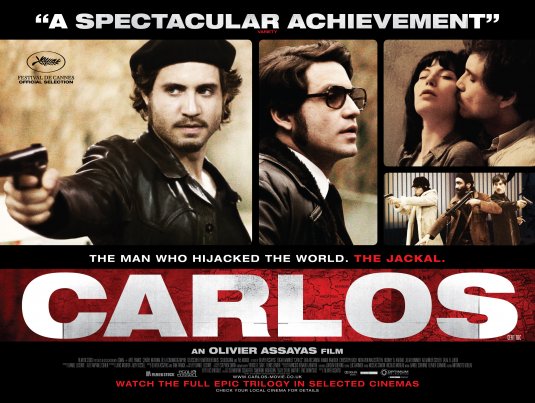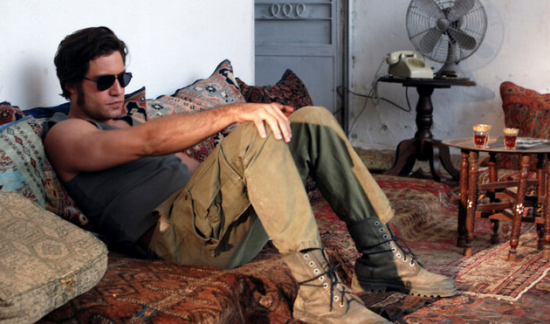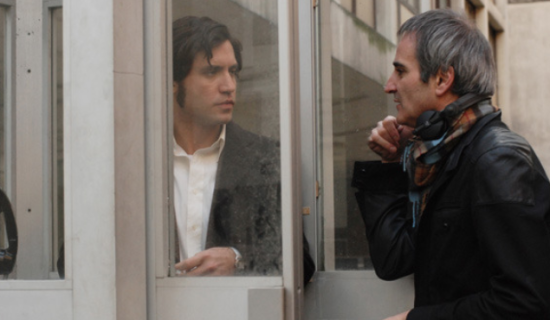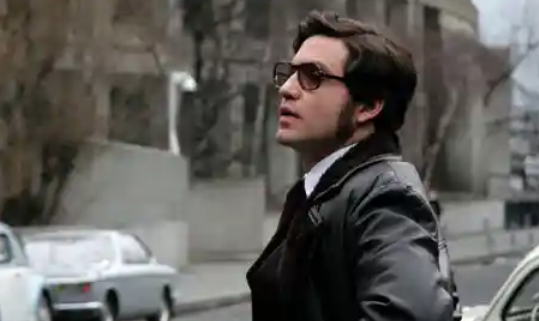Groupthink doesn’t live here, critical thought does. Punk heart still beating.
This ad-free website is dedicated to Agnès Varda and to Luis Buñuel.
Get cool rewards when you click on the button to pledge your support through Patreon.
Thanks a lot acorns!
Your kind generosity keeps the reviews coming!
This condensed two-and-half-hour version of director Olivier Assayas’s three-part miniseries, about one of the most notorious terrorists of the 20th century is so engrossing that it just may send you out in search of the non-abridged five-and-a-half-hours. More of a fact-based espionage thriller than a biopic, “Carlos” fits comfortably alongside similar cinematic attempts to grapple with controversial revolutionaries, as with Stephen Soderbergh’s Ché Guevara epic “Ché.”
Assayas’s adept handling of period style and social subtext is highly apparent with a sense of informed whimsy that comes across in his choice of ’70s and ’80s punk and synth music. When the Dead Boys’ “Sonic Reducer” comes blasting through a car radio it has a profound effect on the film’s pedal-to-the-metal attitude.
Assayas charts the transformation of Venezuelan activist Ilich Ramirez Sánchez (Édgar Ramírez) into his terrorist identity as Carlos, following his pro-Palestinian actions in Jordan, London, and Paris. The nail-biting centerpiece is Carlos’s 1975-led seizure of OPEC headquarters, when he and his team of six militants held over sixty ministers and delegates as hostages.
Édgar Ramírez’s fleshy portrayal of the enigmatic Carlos is a mesmerizing high-wire act of incredible precision. As much as the film’s dramatic liberties might seem to canonize a terrorist the British press dubbed “the Jackal,” “Carlos” is a character study that fairly depicts warts and all. The film provides a glimpse into the global forces at play which created a power vacuum that a unique man was able to exploit for a surprisingly long period of time. Carlos’s egotism, fatalism, and hypocritical desires are dissected with an surgeon’s scalpel.
The overall subtext explains that Carlos was a relatively inexperienced amateur compared to the corporate powers that hold more hostages and make much steeper demands. Don’t miss “Carlos.”









